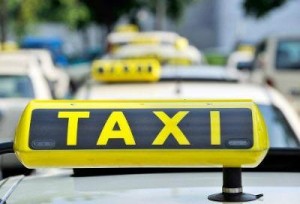1 min read
Government Drafts Rules To Regulate Uber, Other App-Based Taxi Services

December 19, 2024
Copyright 2023, IT Voice Media Pvt. Ltd.
All Rights Reserved

 including US-based Uber and its domestic rival Ola, for the first time laying down federal rules that could end months of uncertainty on how they operate in the country.
including US-based Uber and its domestic rival Ola, for the first time laying down federal rules that could end months of uncertainty on how they operate in the country.